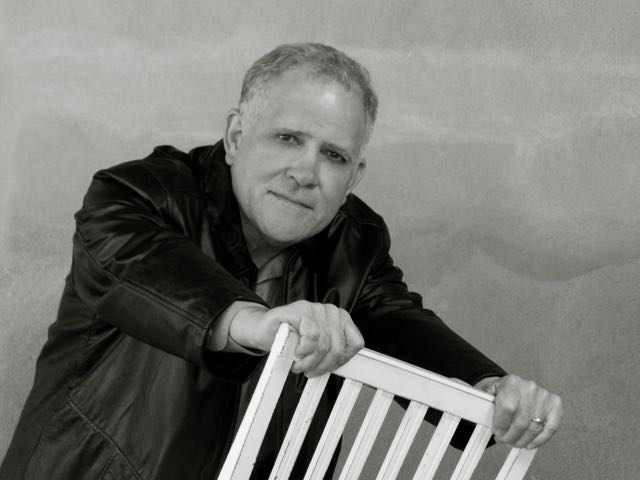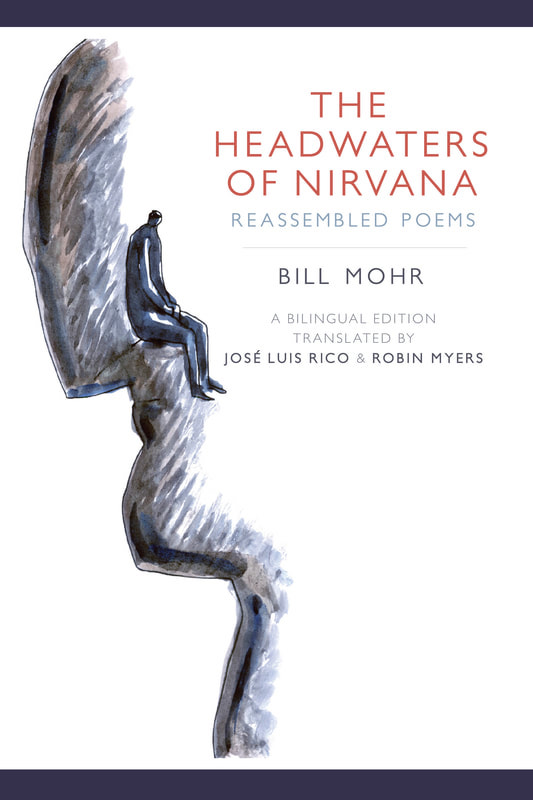1.As though it could do anything but vanishmy mother’s life is only tiny stories nowand what I remember of them afterward:how she loved to iron and drink beer on hot nights.I too love to flatten wrinkles out of a shirtwith light blue, or dark green, or white cuffs.Tonight I’m sipping beer, the radio’s playing“Bird of Prey Blues,” followed by “All for You.”It doesn’t take much to get me drunk.Even so, I don’t have enough beerto savor it. I finish another three shirtsand imagine the wrinkles lifting off,layering and coiling themselves around melike petals of an invisible bouquet.I think of my mother sitting in a front row of folded chairsat Fort Rosecrans as I stood to speak about the manwhose uniform she ironed, the man whose asheswere slowly marched in front of us.This last shirt won’t work with the iron.It curdles in a corner, bunches and won’t smooth.2.A couple hours later, it’s still too hot to sleep:my bare feet up on a wooden windowsill, big frame glass slid up. The rumor that proportion is only focus turned inside out is true enough to know its sneakiness.The peppermint tea on the table is slowly cooling, so I know it’s not time that’s altering this clarity.My mother says, “I don’t think we ever really know anybody else I don’t even know if we finish knowing ourselves.”She’s sitting in her kitchen, refusing to eat any supper, insisting she’s full from lunch, happy that I’m visiting long enough so that we can talk.At 75, she hammers boards together for a raised bed in her gardenIrises, gladiolas, lilies.This afternoon we were both reaching for a piece of paper and I brushed her fingertips.My hands are almost as small as hers.The warmth that in an instant gushed from her hand was pure out of focus accident,the slow heat of a third year widow scorching a roomhe sat in before he got up, folded towels, went to sleep, and died.
Arrugas
1Como si pudiera hacer todo menos esfumarsela vida de mi madre ahora es sólo pequeñas historiasy lo que recuerdo de ellas después:su gusto por planchar y beber cerveza en noches cálidas.Yo también amo alisar arrugas de camisascon puños azul cielo o verde oscuro o blancos.Esta noche estoy bebiendo, la radio toca“Bird of Prey Blues”, seguida de “All for You”.Para emborracharme, bastan muy pocas cervezas.Incluso así, hoy no tengo suficientespara hacerlo. Termino otras tres camisase imagine que las arrugas se levantan,me encapan y se enroscancomo pétalos de un ramo invisible.Pienso en mi madre, en primera fila—las demás sillas plegadas—en Fort Rosecrans mientras yo, de pie, hablé del hombrecuyo uniforme ella planchaba, el hombre cuyas cenizaspasaron en una lenta marcha ante nosotros.En esta última camisa, la plancha no funciona.Se enrolla de una esquina, se abulta y nose deja alisar.2Un par de horas después, aún hace demasiado calor para dormir:mis pies descalzos sobre un repecho de madera, abierto el gran marco de vidrio. El rumor de que la proporción es sólo enfoque vuelto del revés es tan verdad como para saber que es evasivo.El té de hierbabuena se enfría en la mesa lentamente, así que sé que no es el tiempo el que altera esta claridad.Mi madre dice: No creo que alguna vez conozcamos realmente a otra persona. Ni siquiera sé si terminamos de conocernos a nosotros mismos.Sentad a en su cocina, se niega a merendar mientras insiste en que se llenó en la comida y la alegra mi visita suficientemente larga para que conversemos.A sus 75, ella martilla un ban cal hecho de tablas en su jardín de irises, gladiolas, azucenas.Esta tarde ambos intentamos tomar el mismo pedazo de papel y rocé las yemas de sus dedos.Mis manos son casi tan pequeñas como las de ella.La calidez que brotó de su mano en un instante fue un accidente desenfocado y puro,el lento calor de sus tres años de viuda calcinando un cuartodonde él se sentaba antes de pararse, se dormía, doblaba toallas, y murió.





